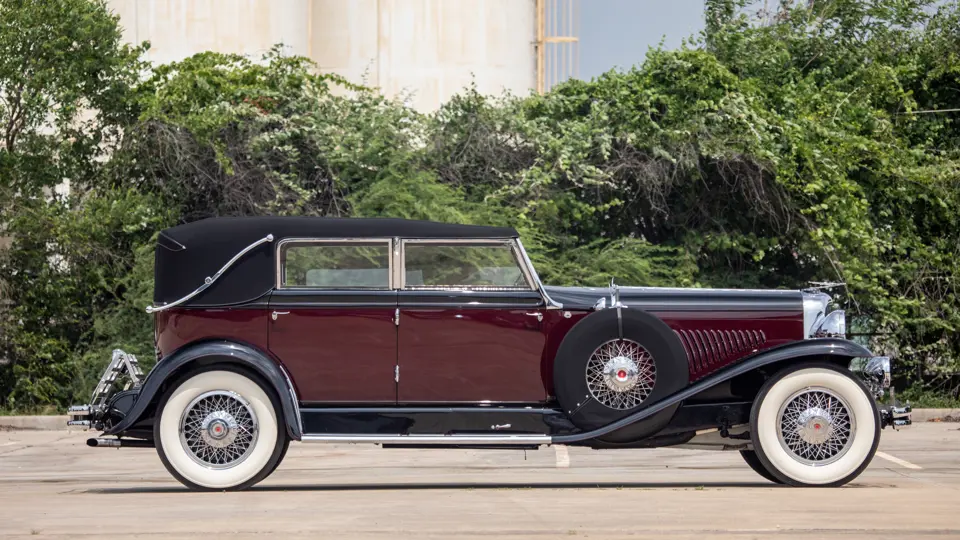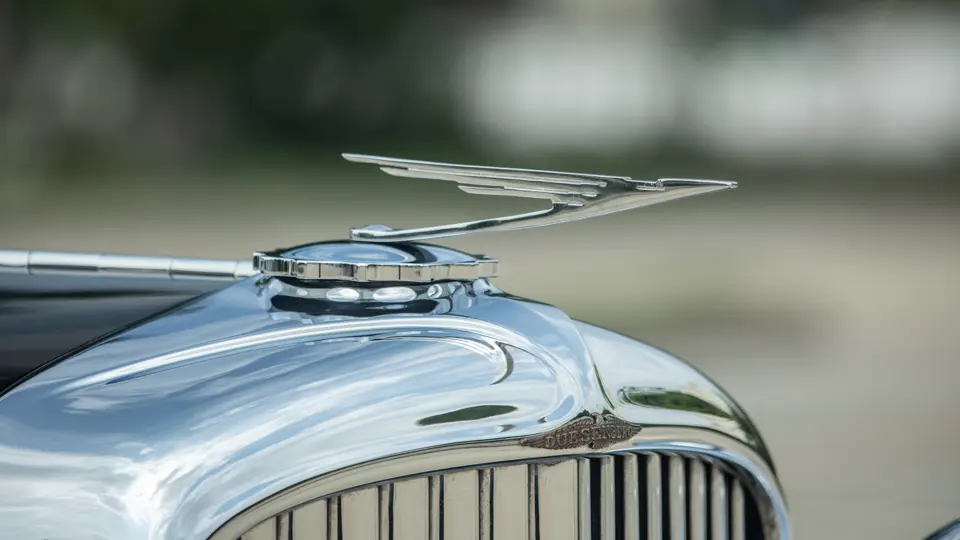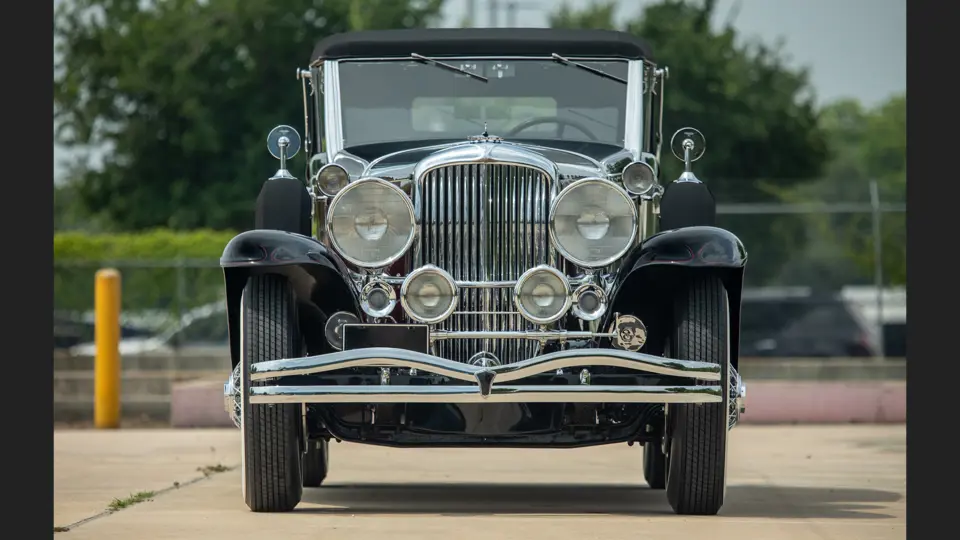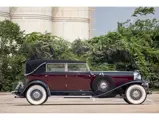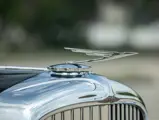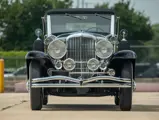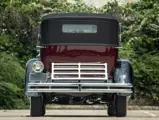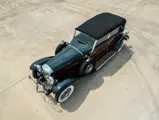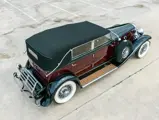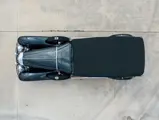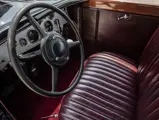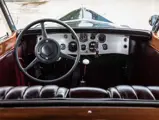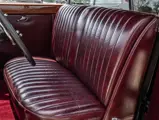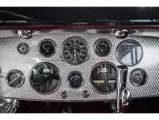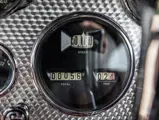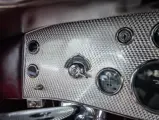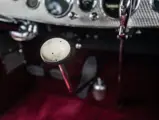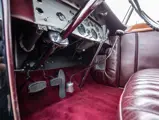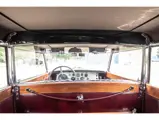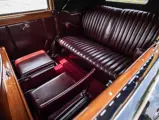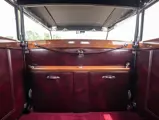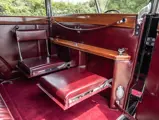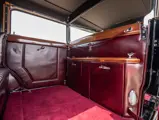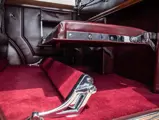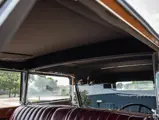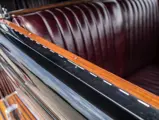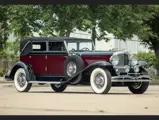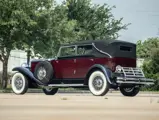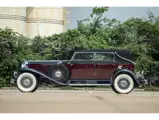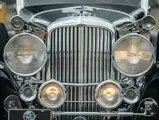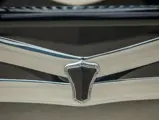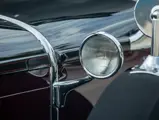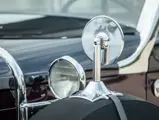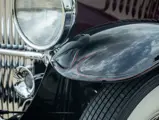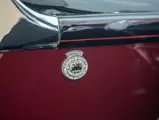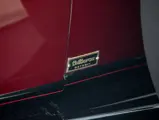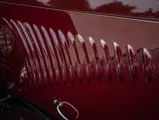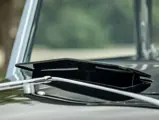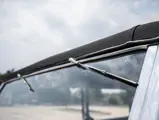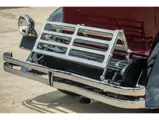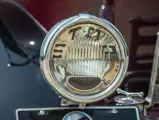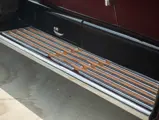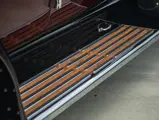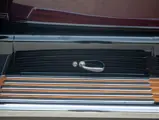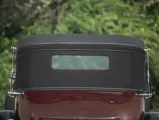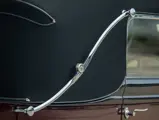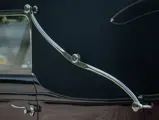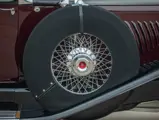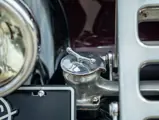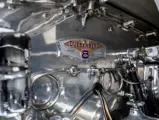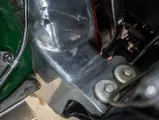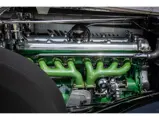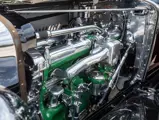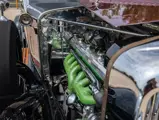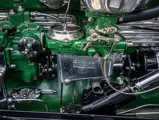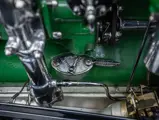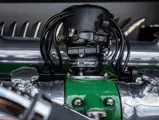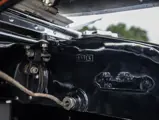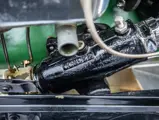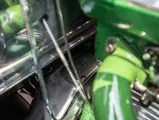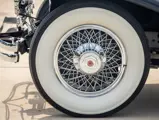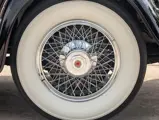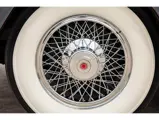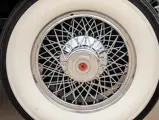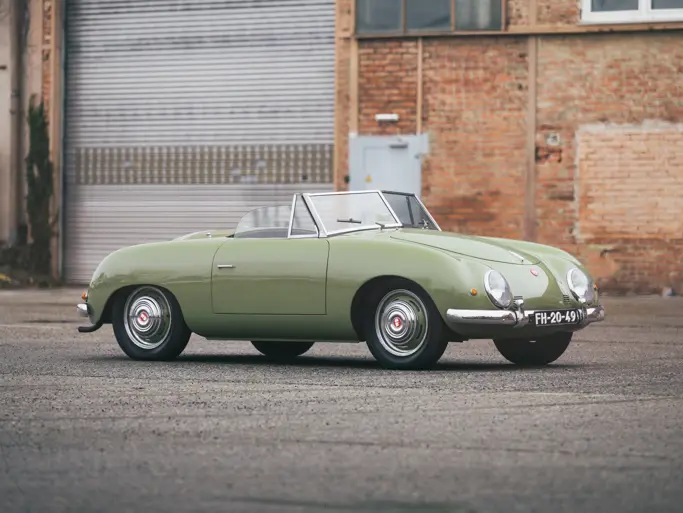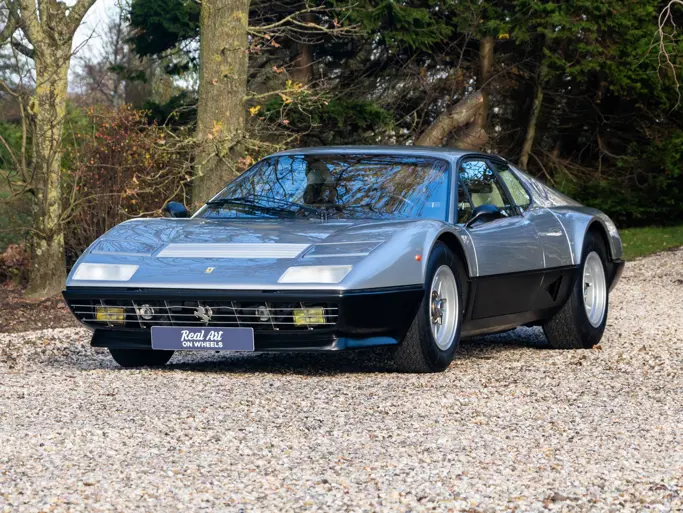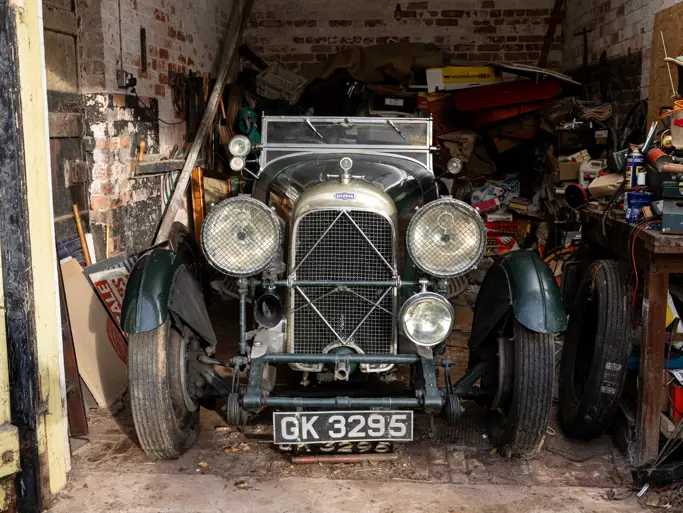
1930 Duesenberg Model J Convertible Berline by LeBaron
{{lr.item.text}}
$1,061,000 USD | Sold
{{bidding.lot.reserveStatusFormatted}}
- A handsome and sophisticated design by the famed LeBaron
- Formerly of the noted J. Peter Ministrelli and Paul Andrews collections
- Excellent purity; original chassis, engine, and coachwork
- Well-preserved restoration by RM Auto Restoration
- Auburn Cord Duesenberg (ACD) Club Certified Category 1 (D-202)
Few coachbuilders on the Duesenberg Model J are more highly regarded than LeBaron, and fewer still were capable of such an astonishing breadth of work. LeBaron produced everything from the famed “sweep panel” and “barrelside” phaetons, to the occasional limousine with their own special tailored style. Among their most successful works on the Model J was the Convertible Berline, as catalogued by Duesenberg and featured in the company’s catalogue.
Six examples of the LeBaron Convertible Berline were eventually built. Of those, body number LB 4100, mated to engine J-362 and chassis 2380, was the first of four to this design, outfitted for occasional formal use with folding jump seats and a division window. Three remain extant as part of long-term private collections.
J-362: THE DUESENBERG AND THE FAIR
In 1874, Chicago merchant Ernst J. Lehmann established a new business, The Fair Store, named for both its attitude towards customers and its carnival-like atmosphere, created by selling virtually every imaginable item at discount prices. Predating modern big-box retailers’ stock-high-and-sell-low practices by over a century, “The Fair” was known for dealing vast quantities of merchandise on a cash-only basis, for unusual prices that almost never ended in a 0 or 5—emphasizing that buyers were saving then-valuable pennies because the merchant was not rounding up his numbers.
Such was the success of Chicago’s first department store that it eventually occupied a 12-story building on the corner of State and Adams Streets, built in 1897 at a cost of $3 million and advertised as being twice the size of the Bon Marché in Paris. By 1910 it offered nearly 800,000 square feet of retail space and, with 5,500 workers, qualified as one of Chicago’s largest employers!
The family firm was finally sold by its founder’s heirs in 1925 to a group headed by dime store tycoon S.S. Kresge. Those same heirs lived quite well thereafter, largely in palatial estates in the suburban community of Lake Villa, which Ernst Lehmann had played a major role in developing. Two of the family farms there eventually became large subdivisions in their own right, and following the sale of the store, the Lehmanns continued to invest in Chicago-area property and to grow their not-inconsiderable fortune.
In a 1962 list published in the Auburn Cord Duesenberg Club’s Newsletter, Duesenberg historian Ray Wolff listed “August A. Lehmann, Chicago” as the original owner of this LeBaron-bodied Convertible Berline, J-362. There was no “August A.” in the family, however, and subsequent editions of Wolff’s notes identify the owner as “E.E. Lehmann.” However, Ernst E. Lehmann, son of the patriarch, died in January 1930, by which time J-362 had not yet been delivered; Wolff notes its engine being built on 28 May 1930, and the body on 2 July 1930. It is more likely that the original owner of J-362 was in fact Otto Lehmann, Ernst E.’s brother, as it was he who definitively sold the car to its second owner, Dr. Leo Fry, via noted Chicago Duesenberg purveyor John Troka.
Following Dr. Fry, the Model J moved between various short-term caretakers in the Windy City. In 1942 it bought by young William “Bill” Tollagsen, who kept it until 1967. J-362 was then sold to the well-known Chicago car guy, Jim DiBickero, during a time of great civil unrest in Chicago. In an article published in the Spring 2021 edition of the CCCA Greater Illinois Region magazine, The Dashboard, Mr. DiBickero recounted Tollagsen as “a hermit, living in a little bungalow near the riots off Chicago Avenue. So my sales approach was, ‘I know how much you love your car—it’s your only possession. Sell it to me or else let it burn.’ So I bought the car.” The Duesenberg had been stored in a cinder-floored garage that had been completely tarpapered over to prevent theft, and it had to be carefully removed from its “cocoon.” DiBickero undertook a painstaking complete restoration of the Model J, and kept it for 13 years.
In 1981 J-362 was sold to Jerry J. Moore, the flamboyant Texas shopping mall developer whose vast collection would come to number nearly 40 Model Js. The car was a staple of the Moore collection for 16 years, then passed to Rick Walter, for whom a fresh restoration was undertaken by RM Auto Restoration of Blenheim, Ontario.
In 2000 the newly restored J-362 was sold to J. Peter Ministrelli of Troy, Michigan. Mr. Ministrelli’s collection was maintained by the respected Duesenberg specialist, Brian Joseph of Classic & Exotic Service, and so the Model J received the best possible care and feeding while in his ownership. The car was shown between 2001 and 2004 in Classic Car Club of America competition, eventually earning Senior Emeritus status, and four times at the ACD Club National Reunion. It was also inspected by the ACD Club’s historians and issued Category 1 Certification. Reportedly so reliable was the car in regular use that it was dubbed “Old Trusty.”
“Old Trusty” was sold from the Ministrelli collection in 2007 to the late, much-missed enthusiast and friend to many, Paul Andrews of Texas, becoming one of several great Model Js to pass through his hands, all beautifully upkept. Mr. Andrews then sold J-362 in 2010 to the present collection, where it has remained since, largely hidden from public view but well-preserved. Its presentation in crisp black and maroon, with complementary leather interior, is still utterly excellent throughout, and it would of course be warmly welcomed back to both international concours and to the CCCA and ACD Duesenberg Club folds following its extended seclusion.
And it would still look right at home on State Street.
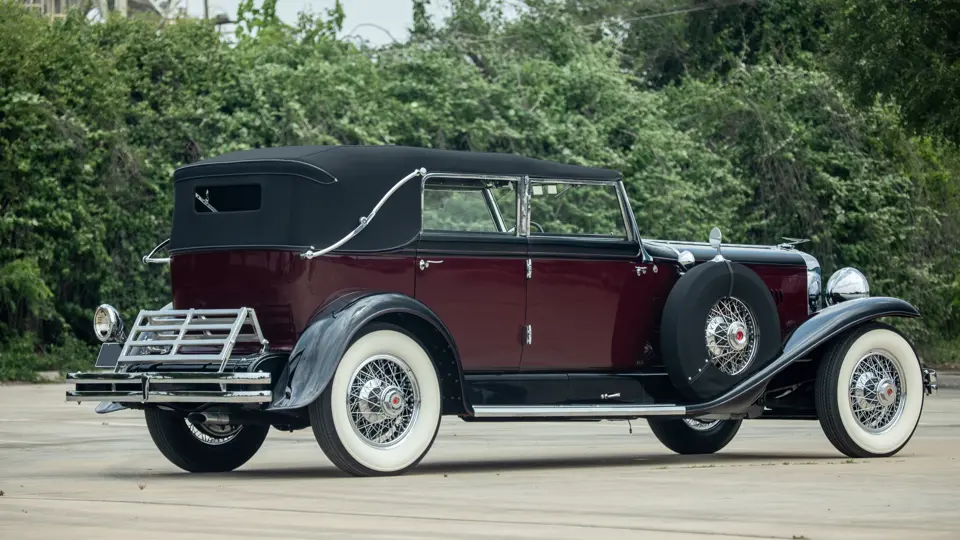



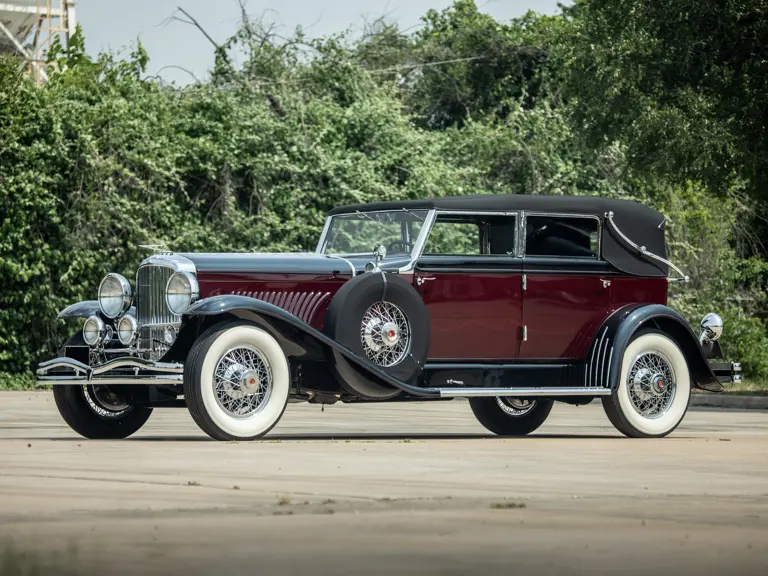
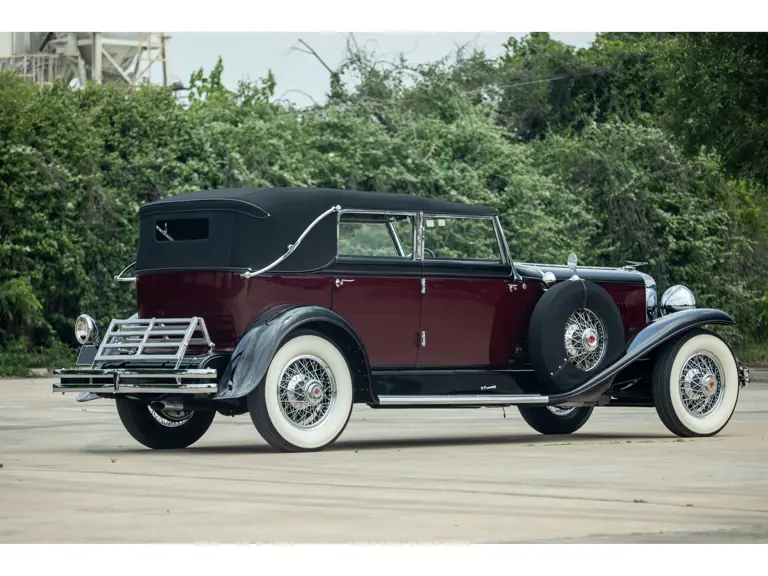
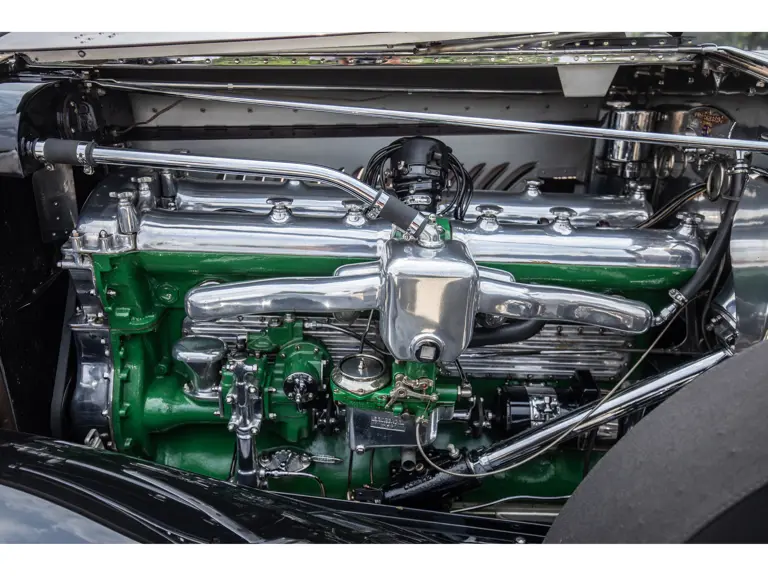
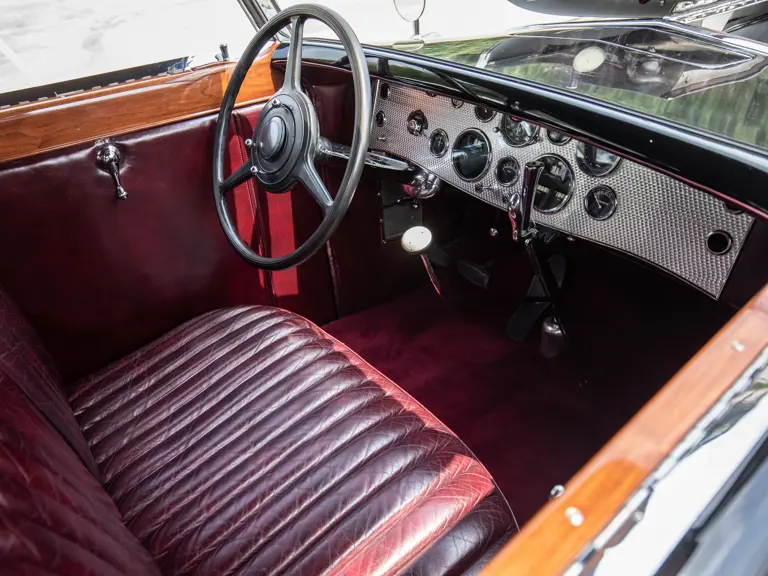
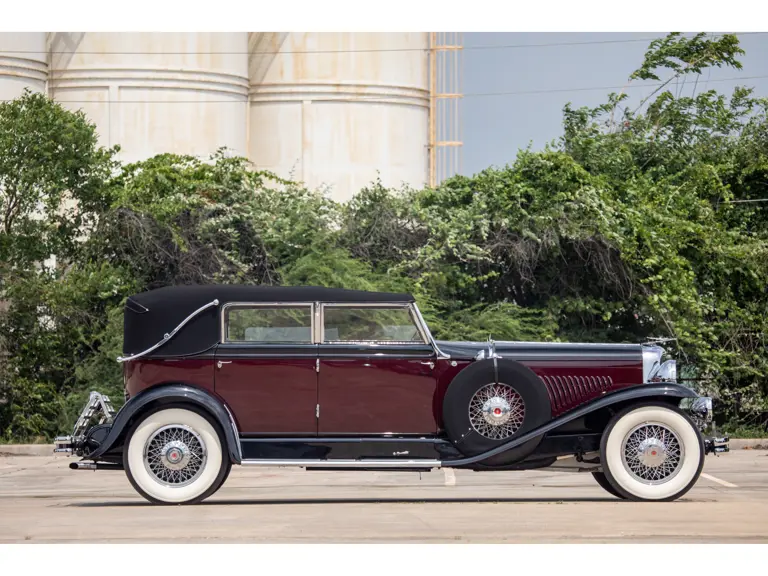
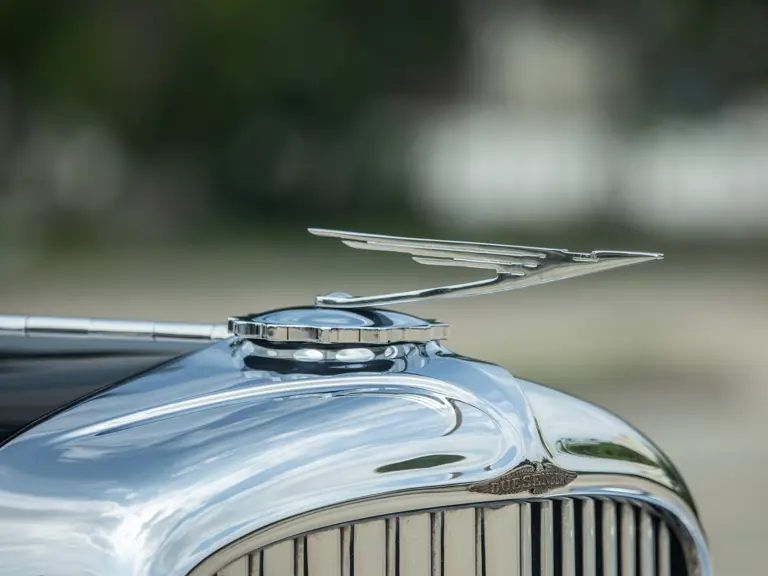
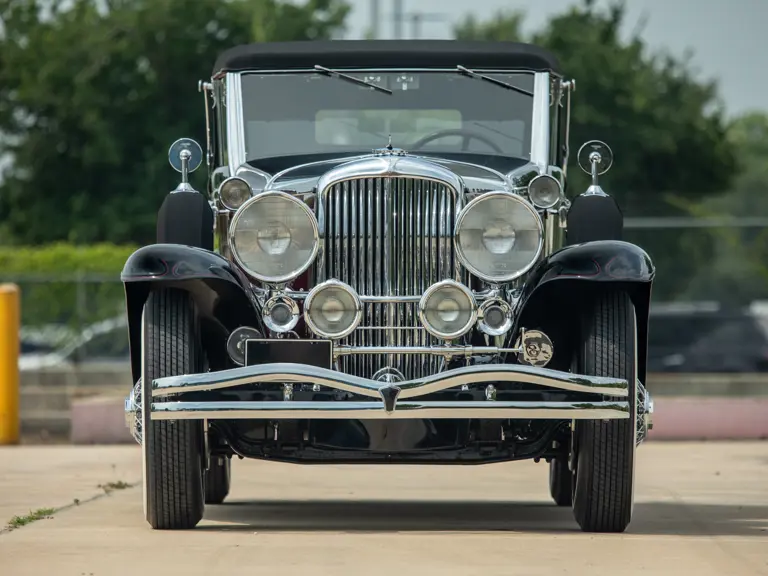
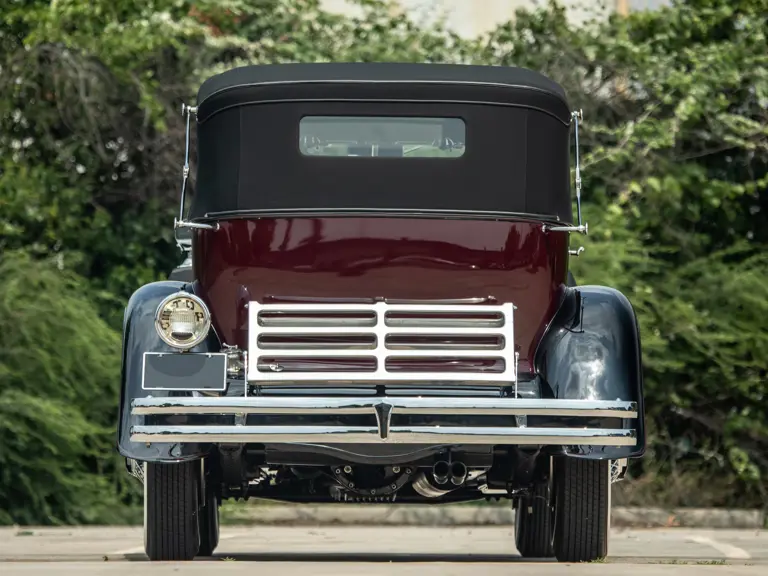
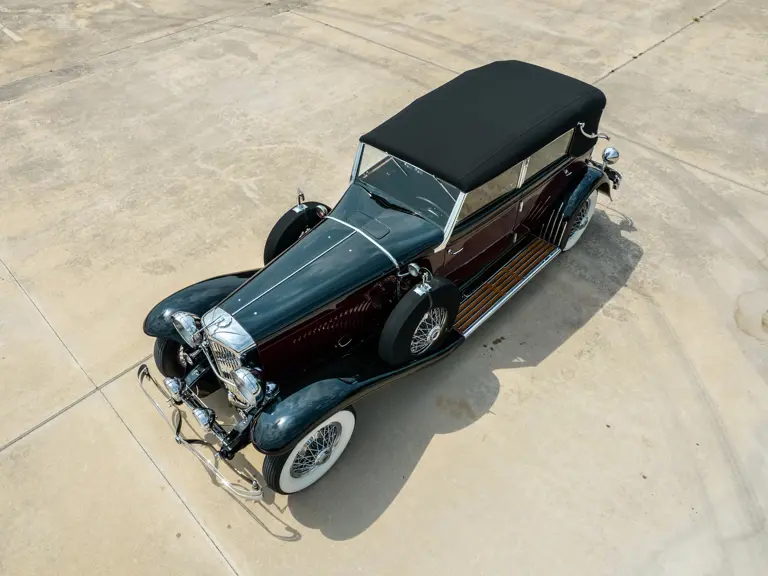
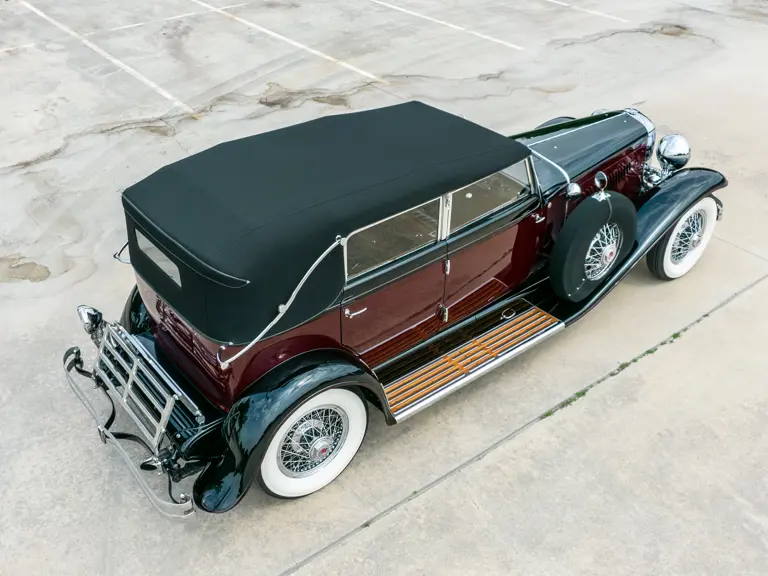
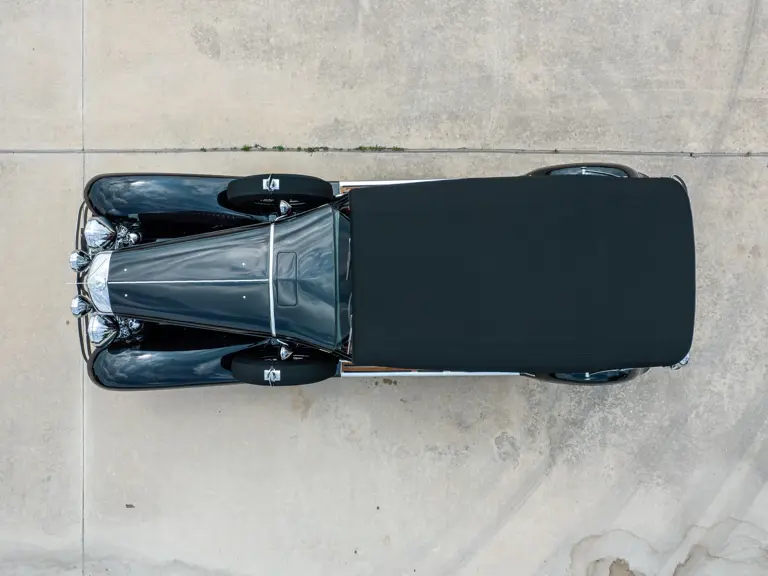
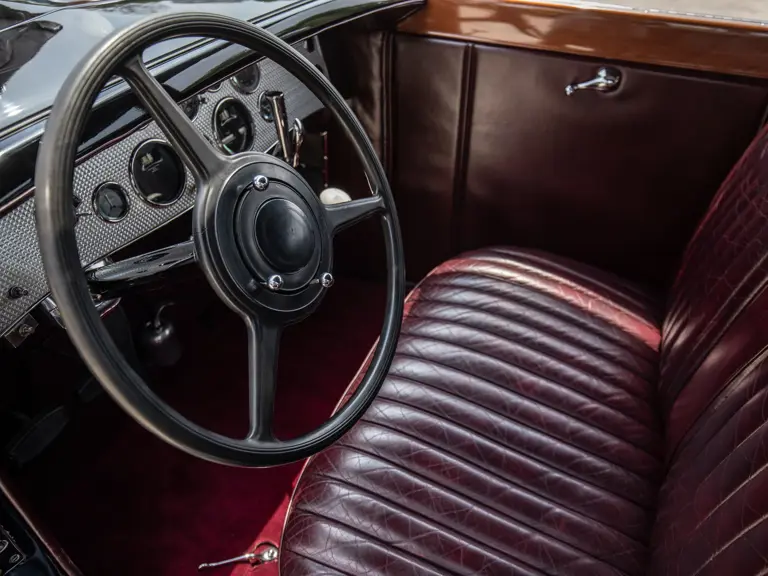
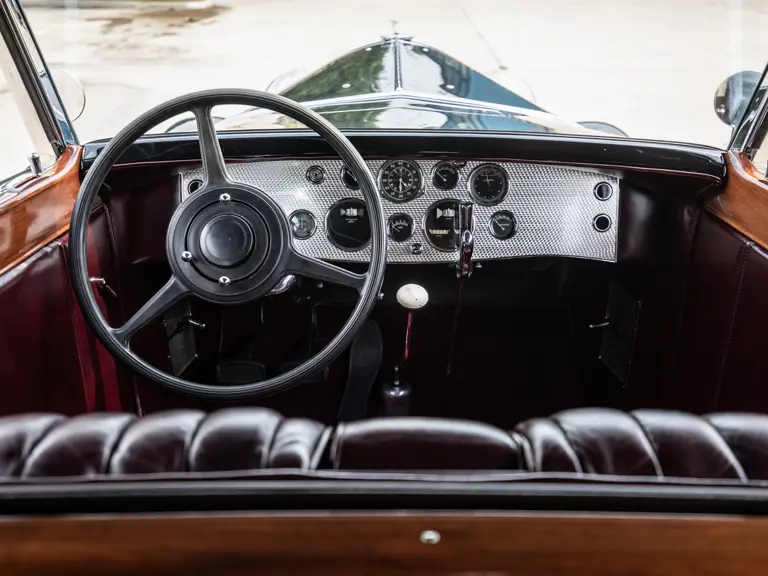
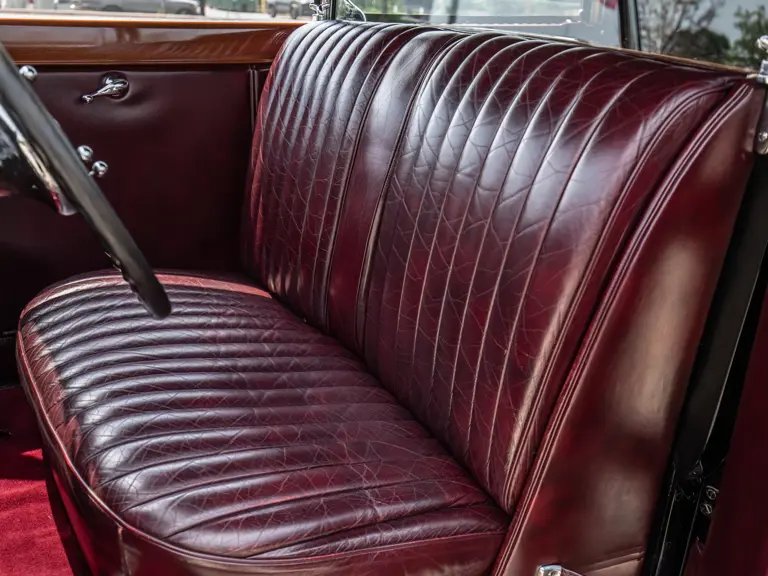
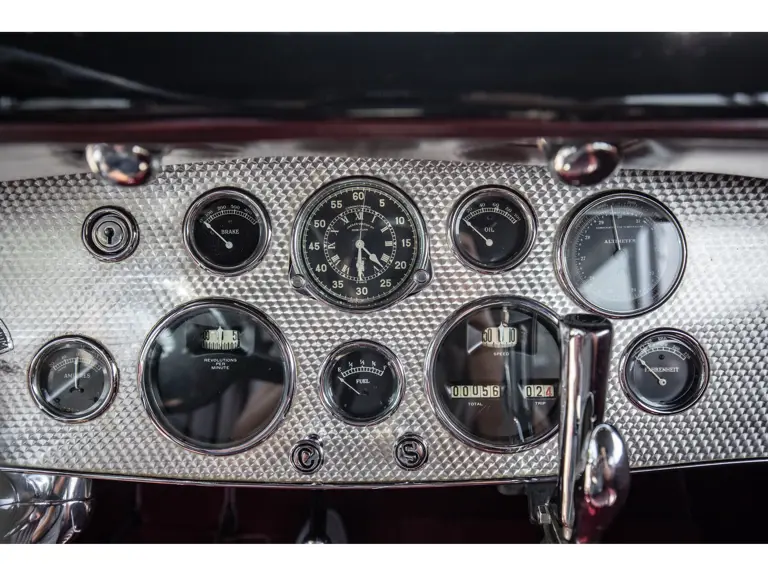
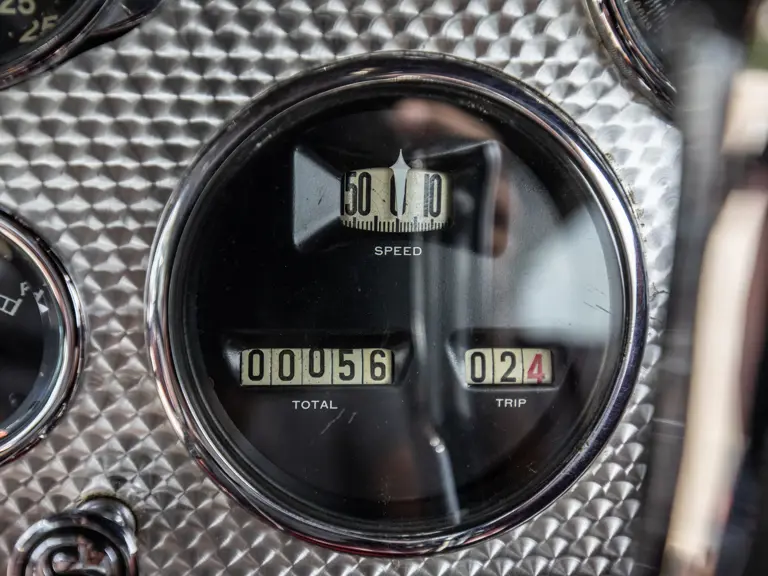
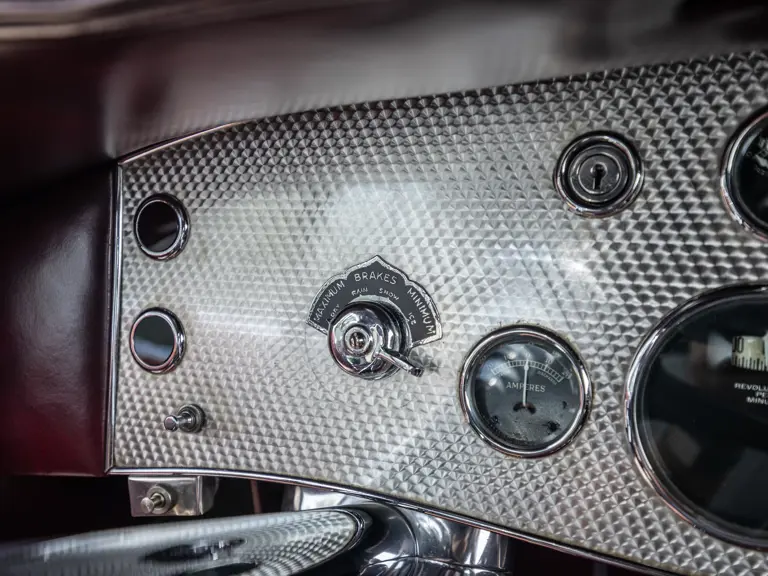
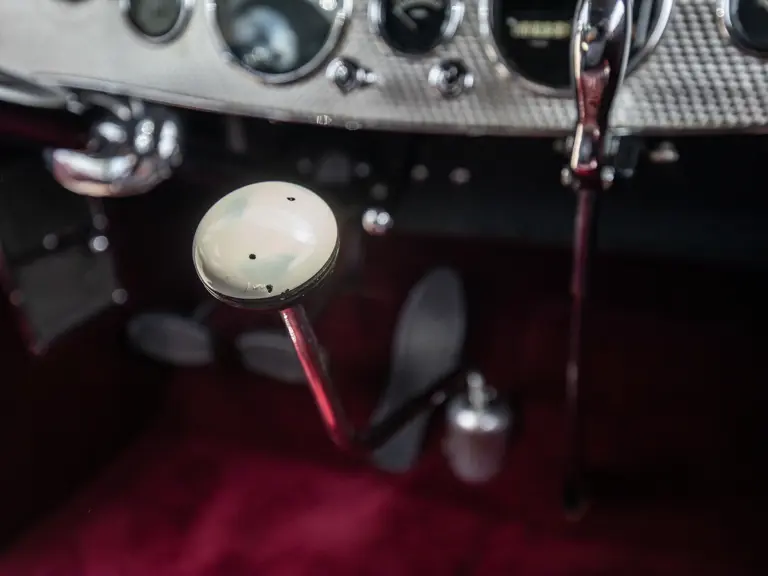
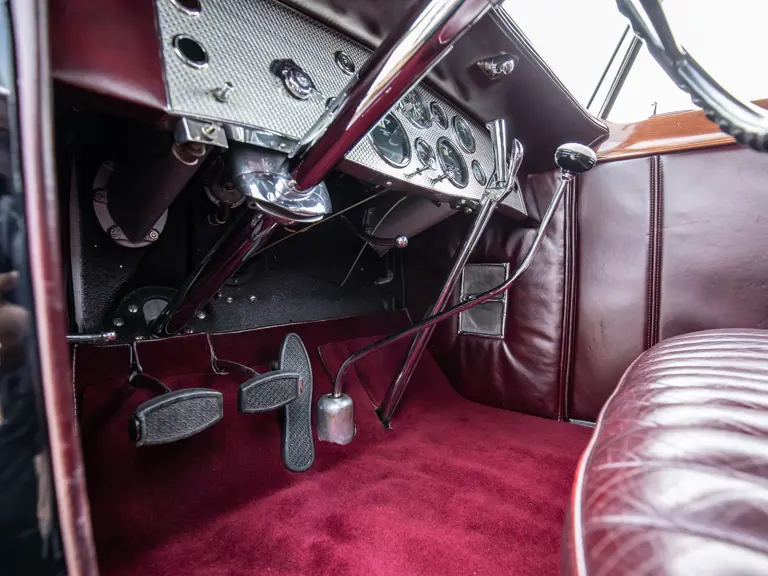
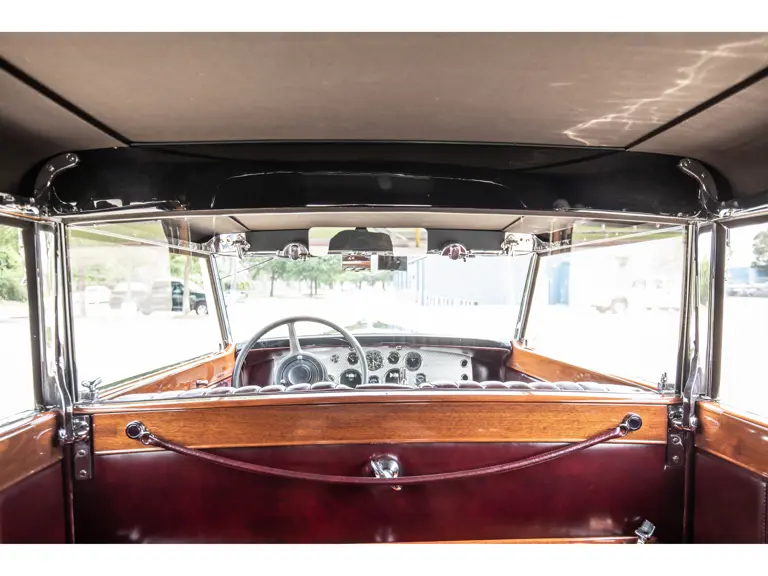
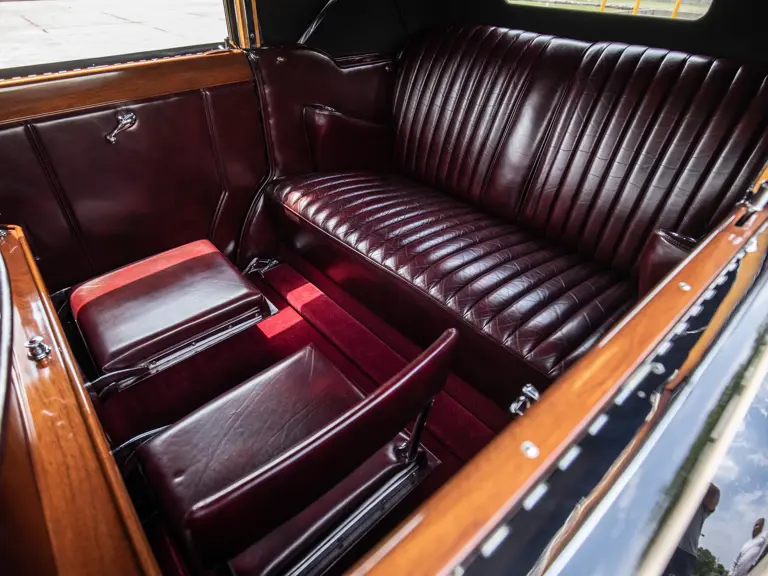
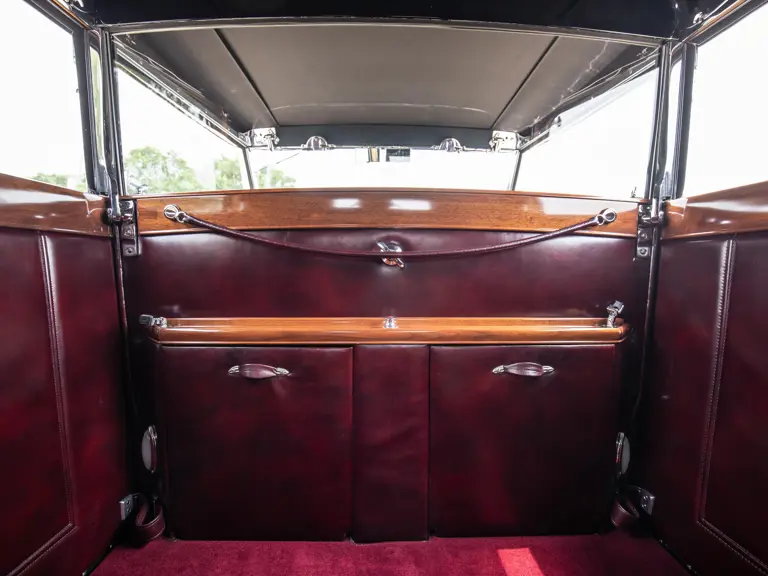
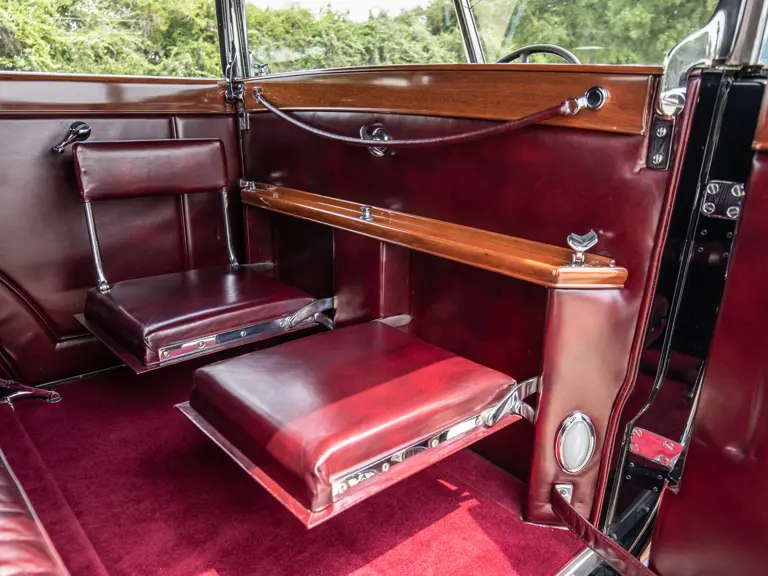
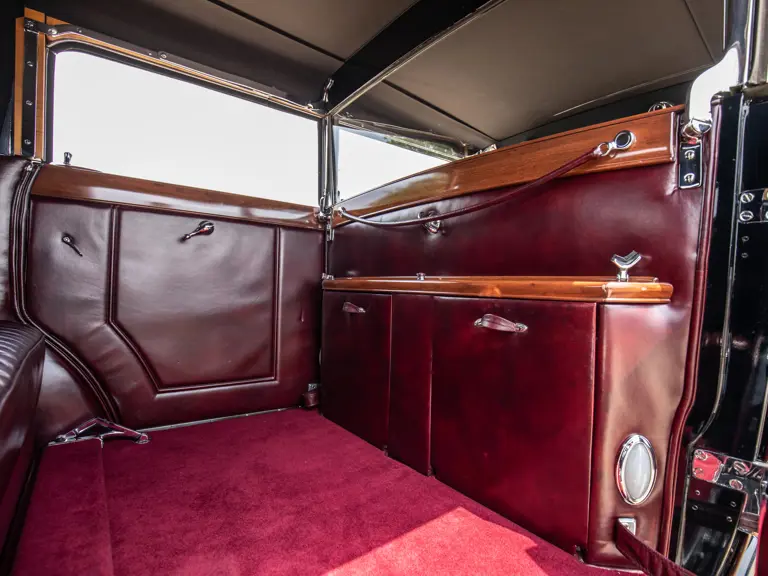
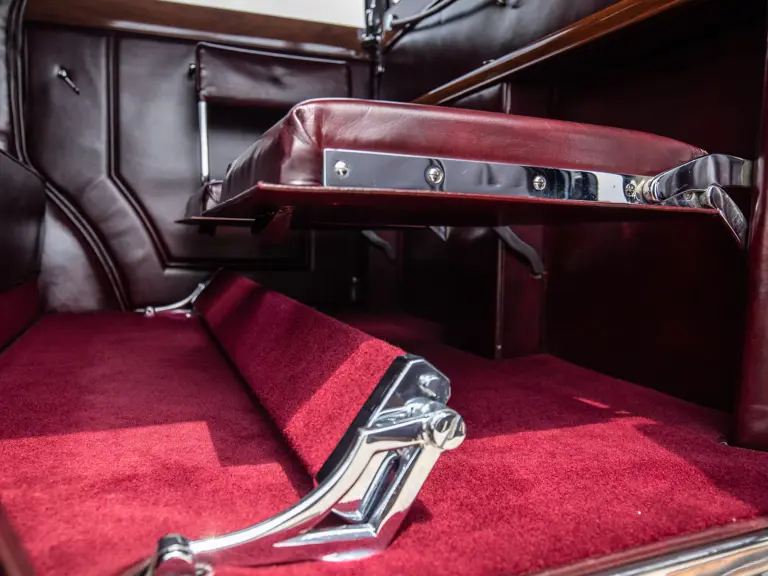
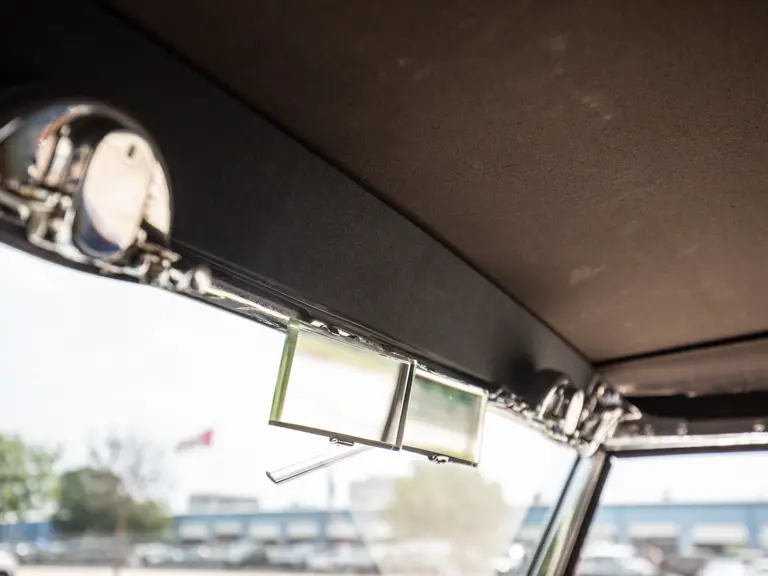
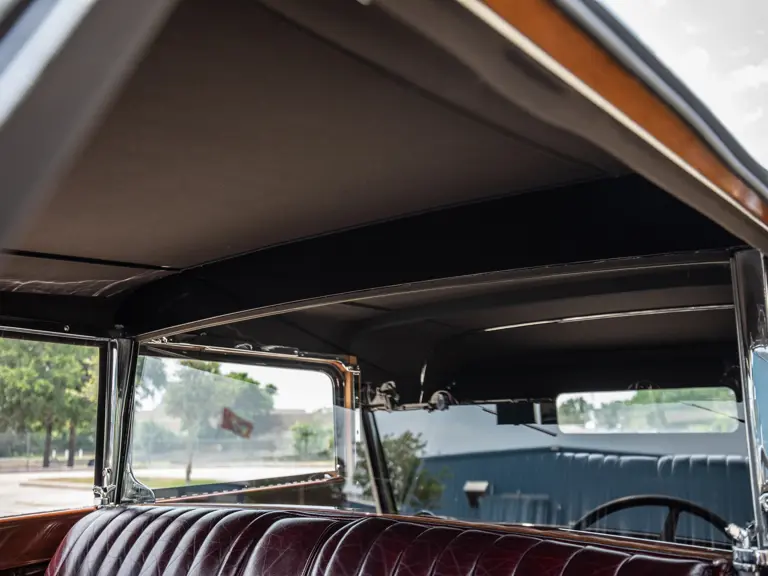
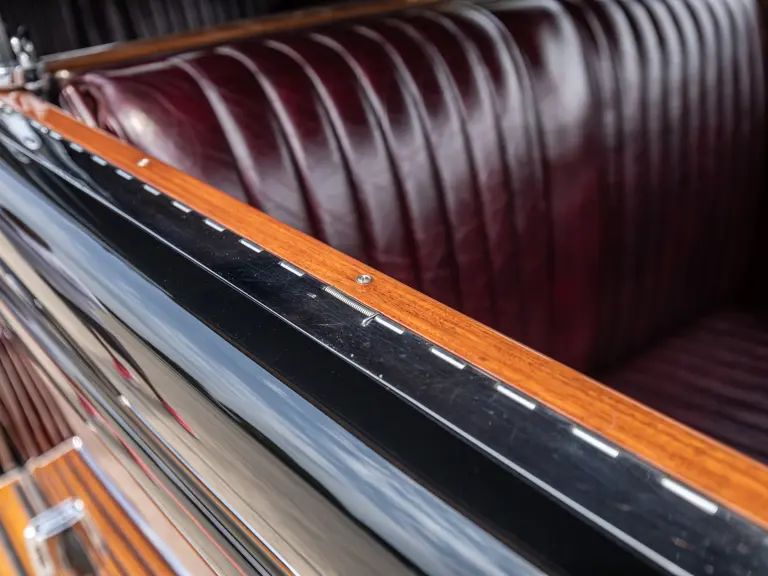
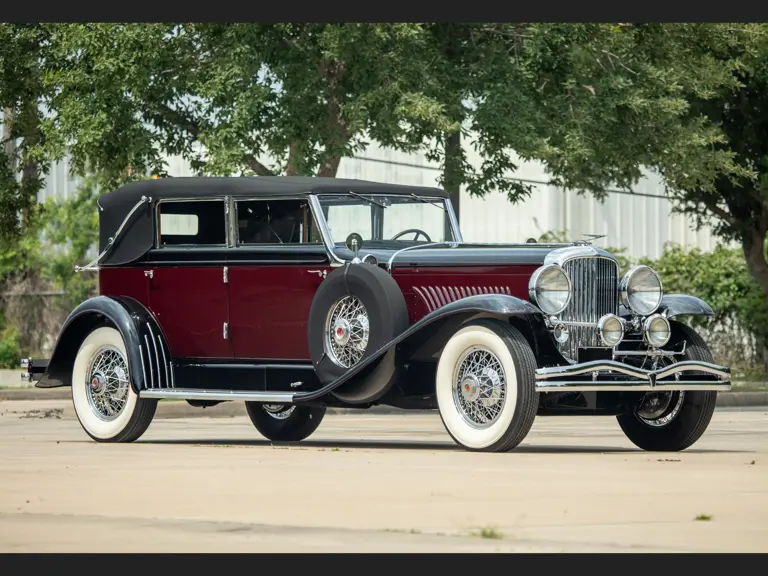
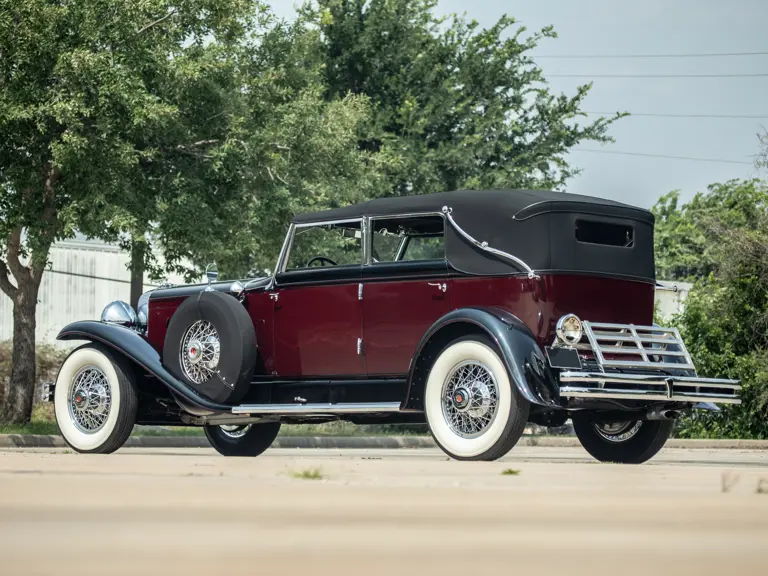
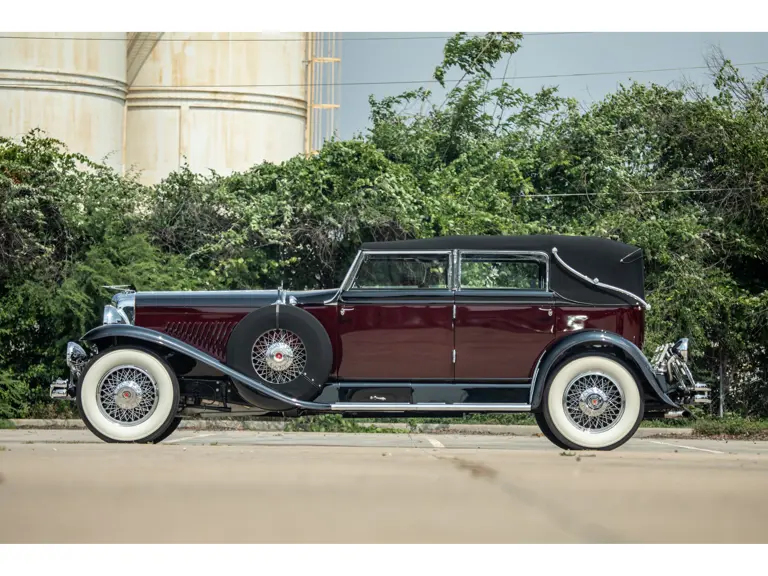
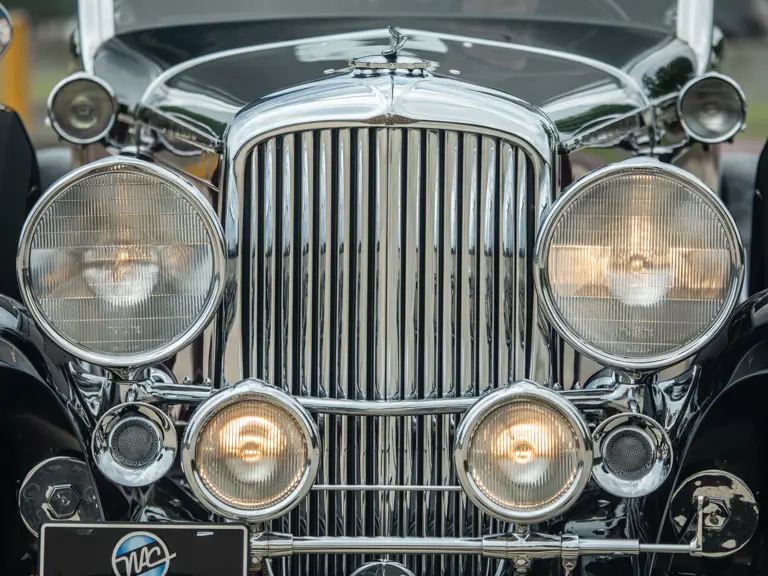
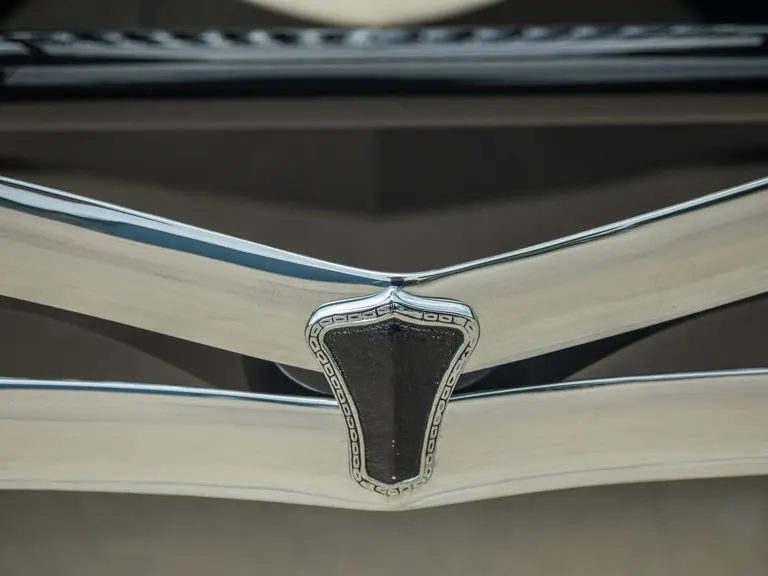
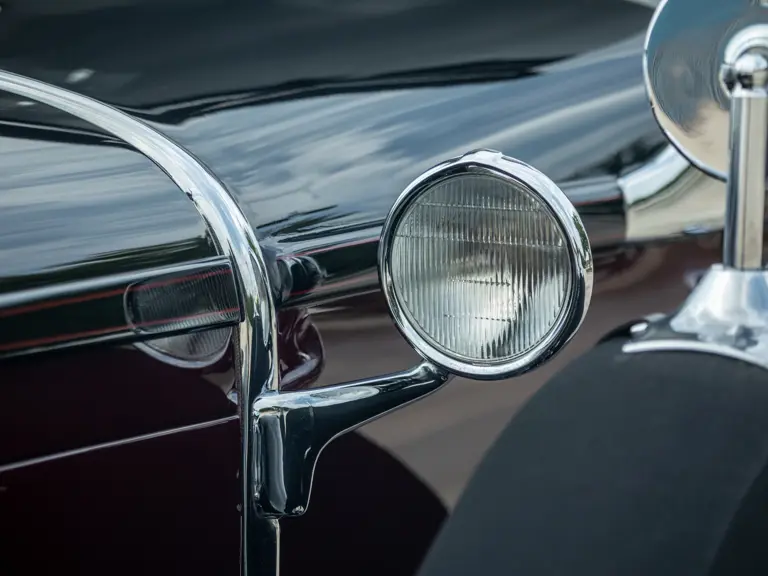
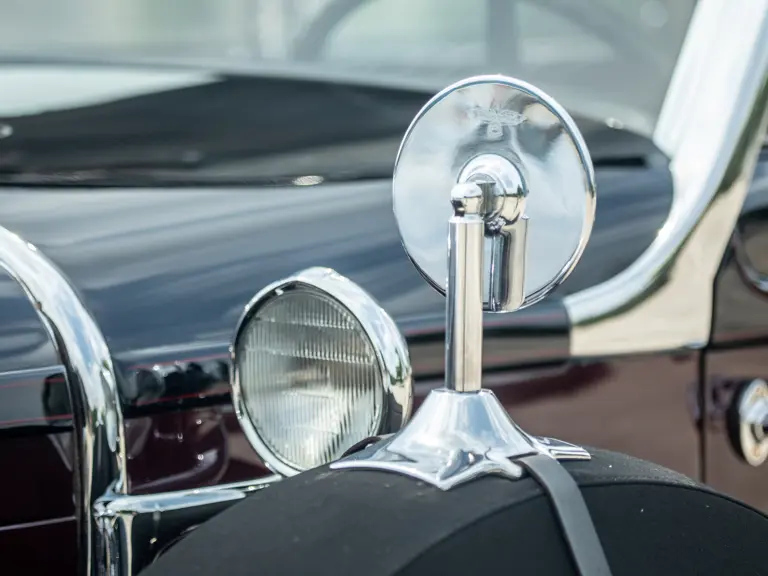
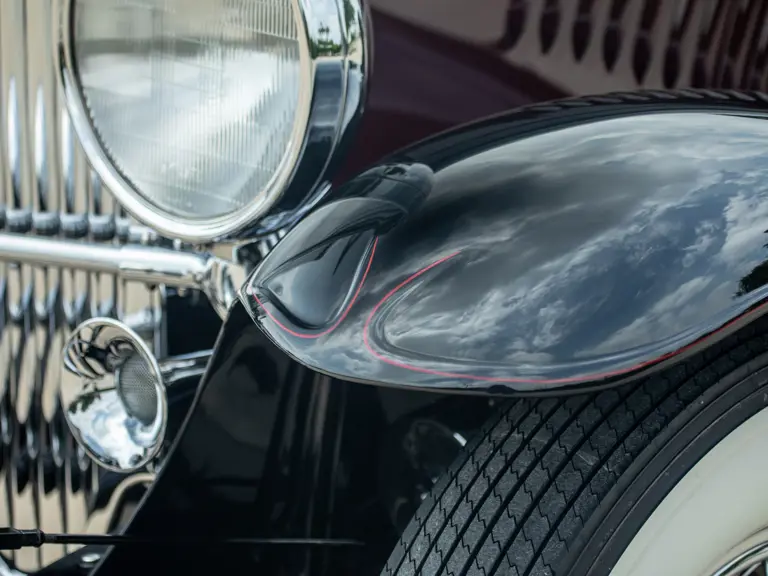
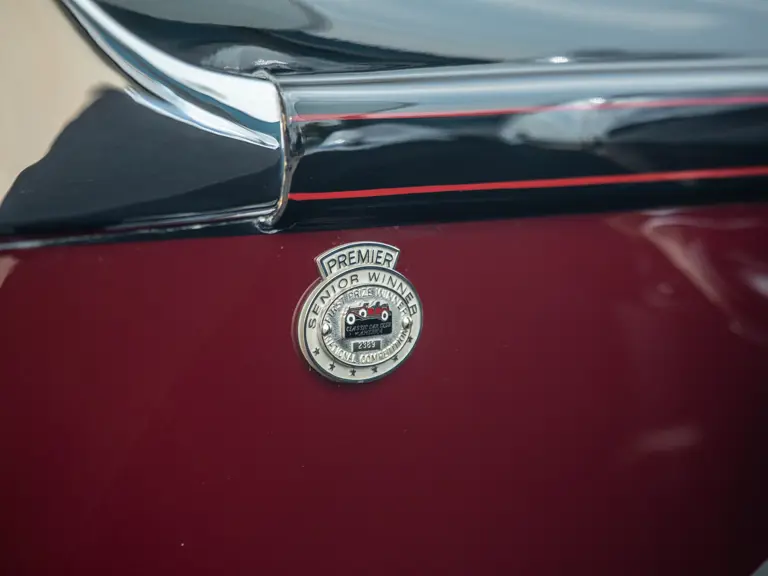
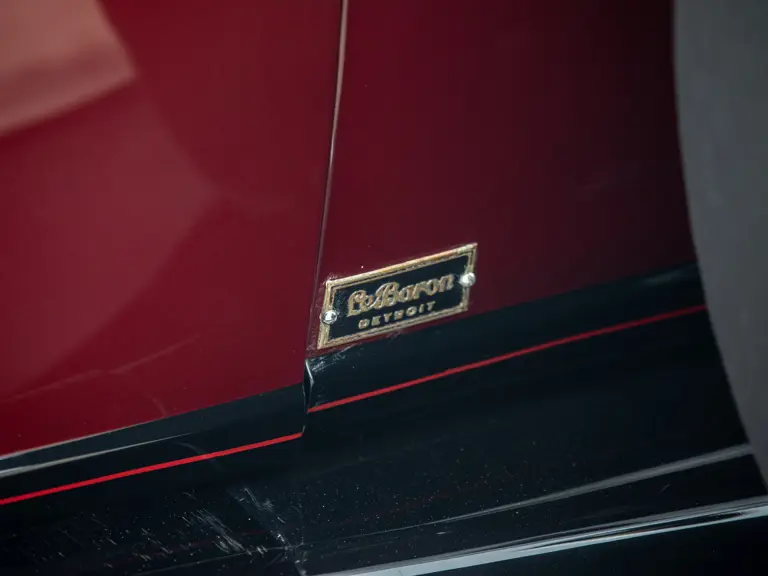
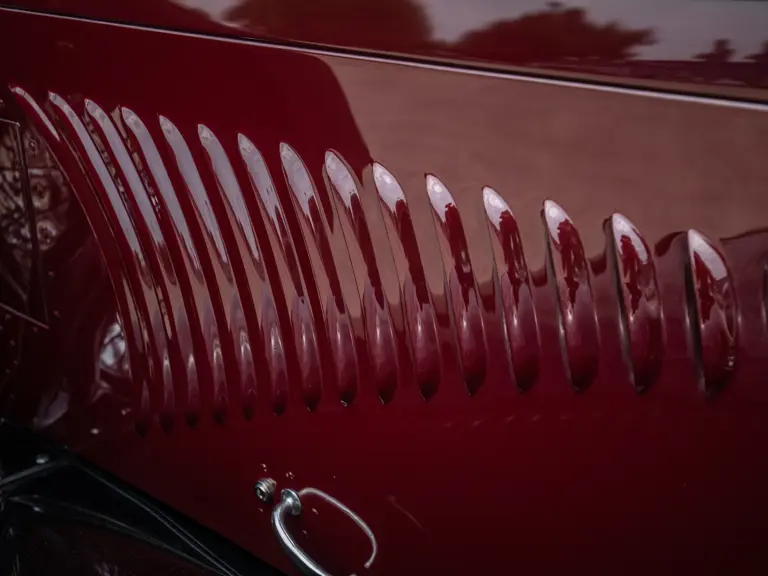
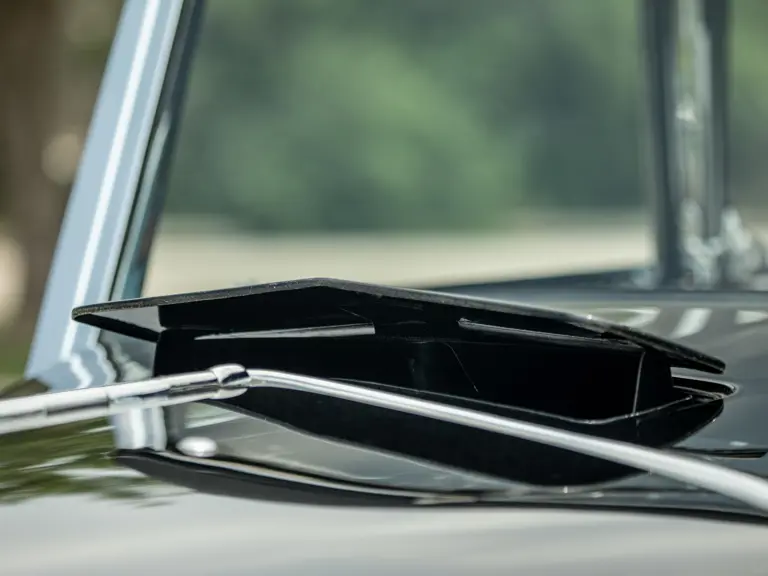
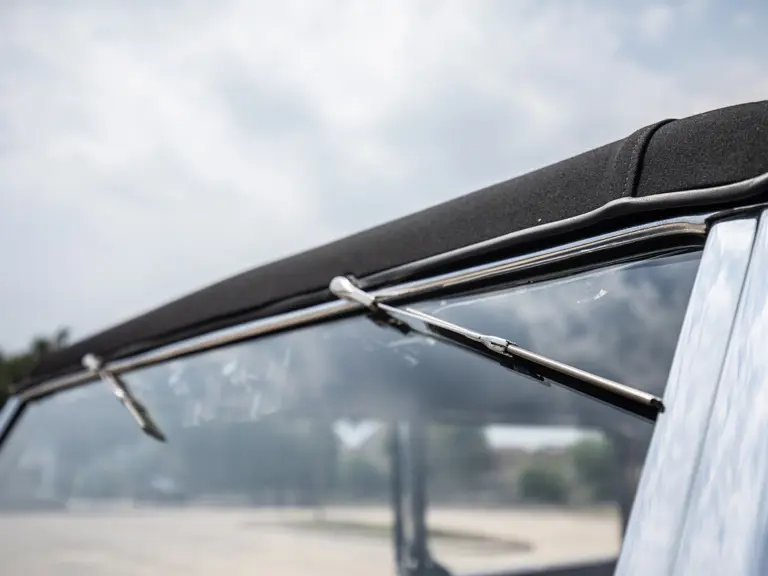

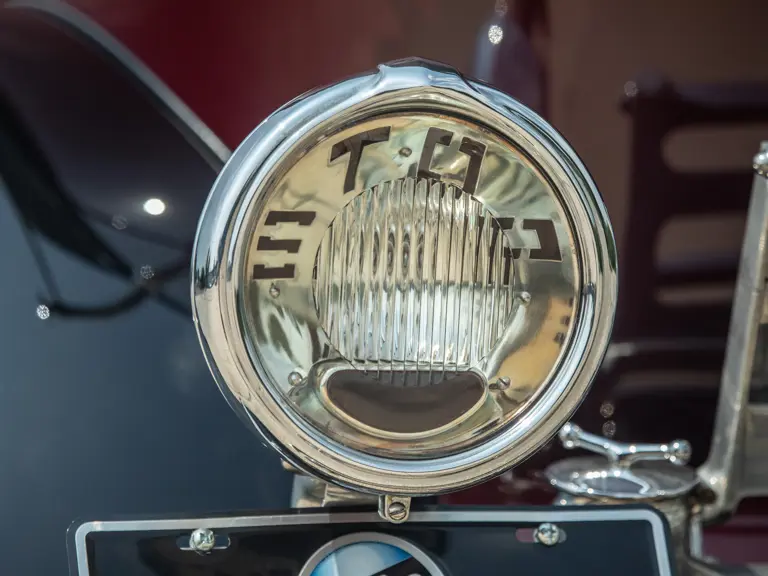
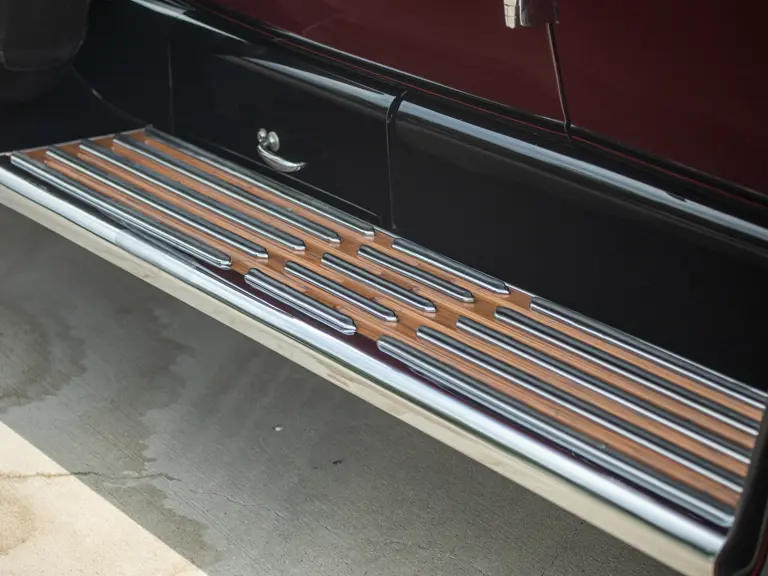
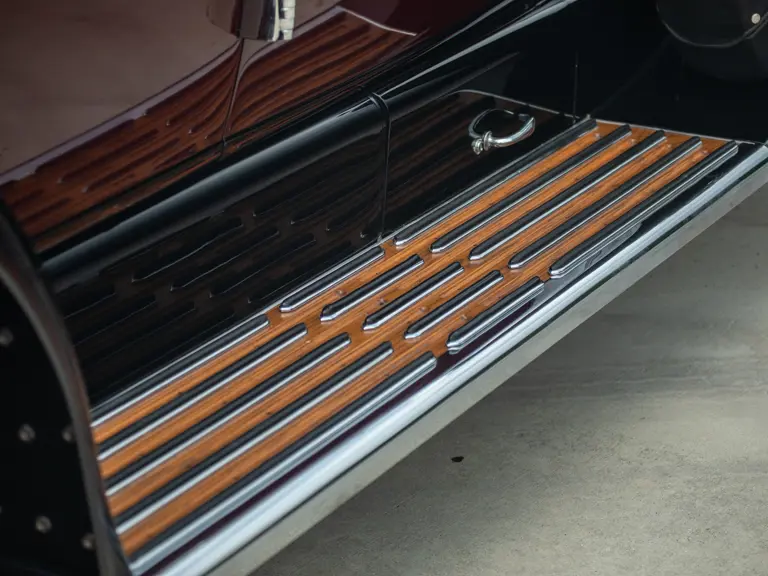
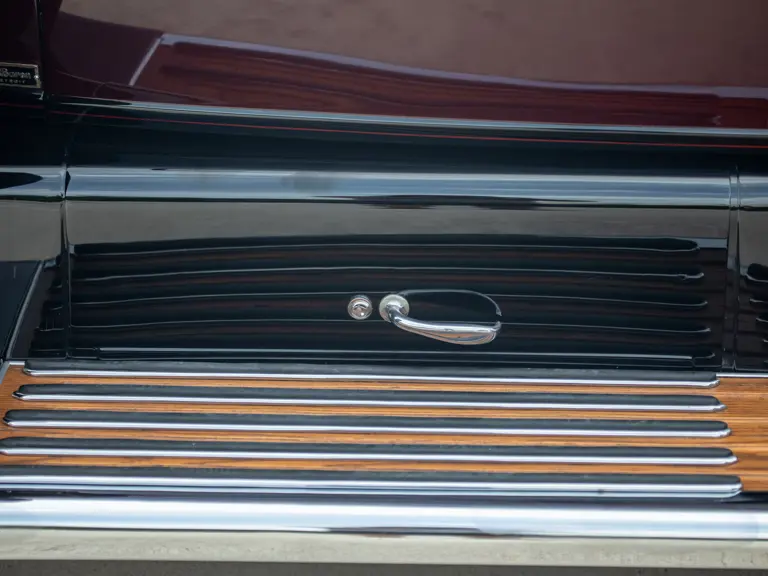
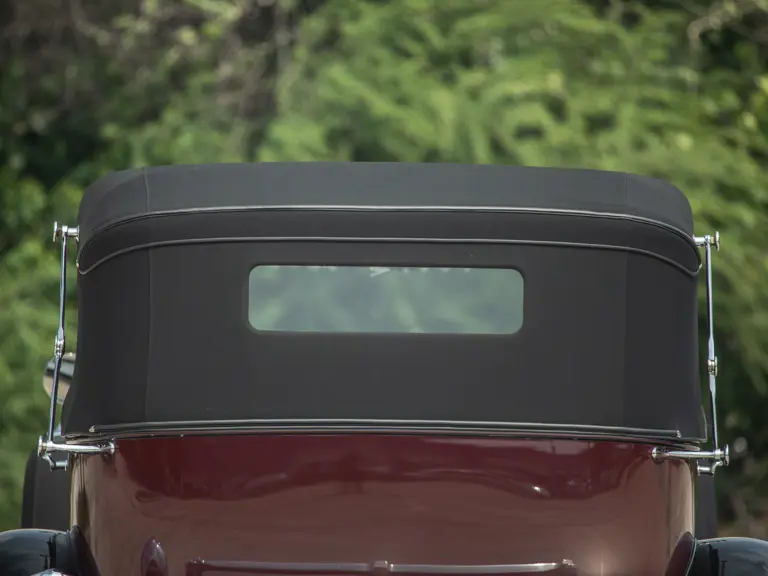
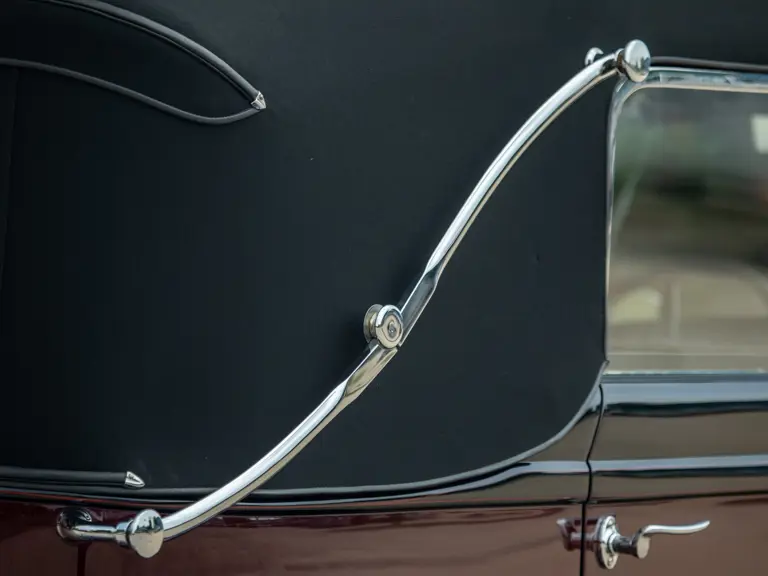
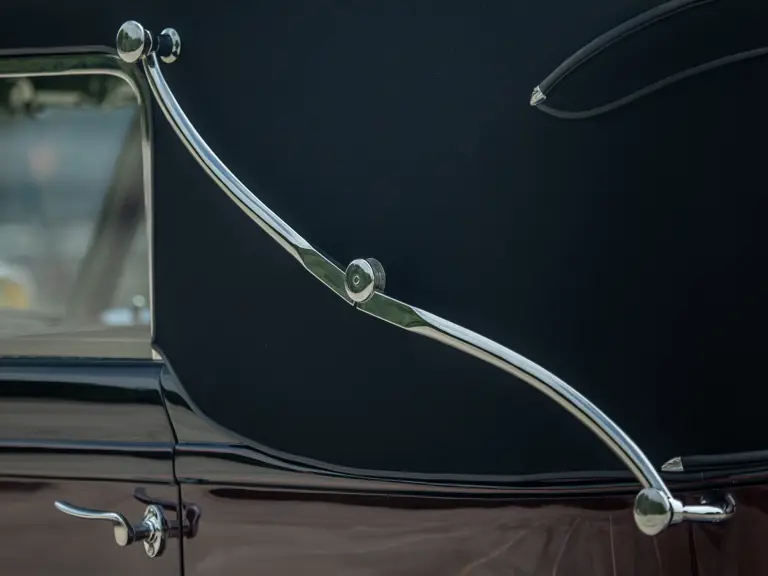
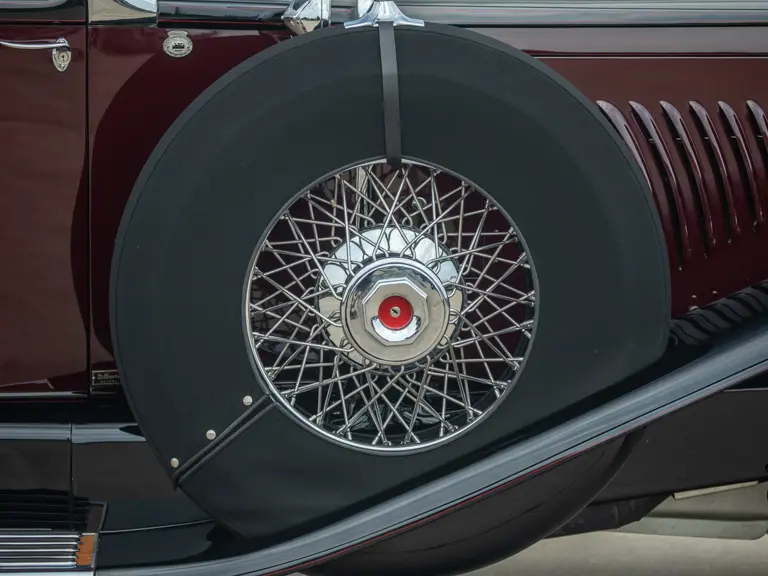
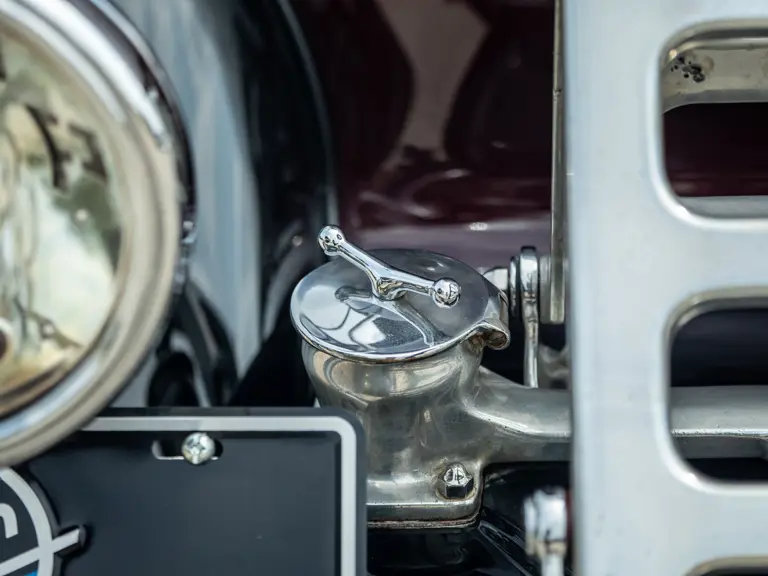
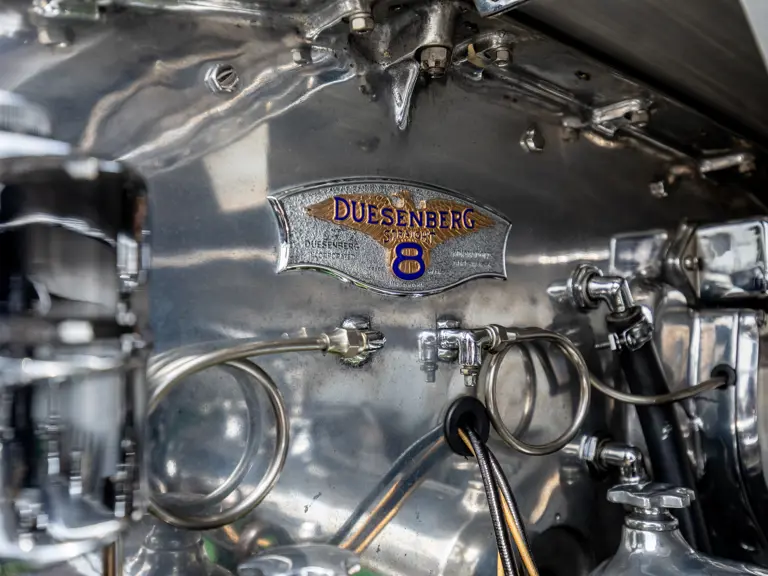
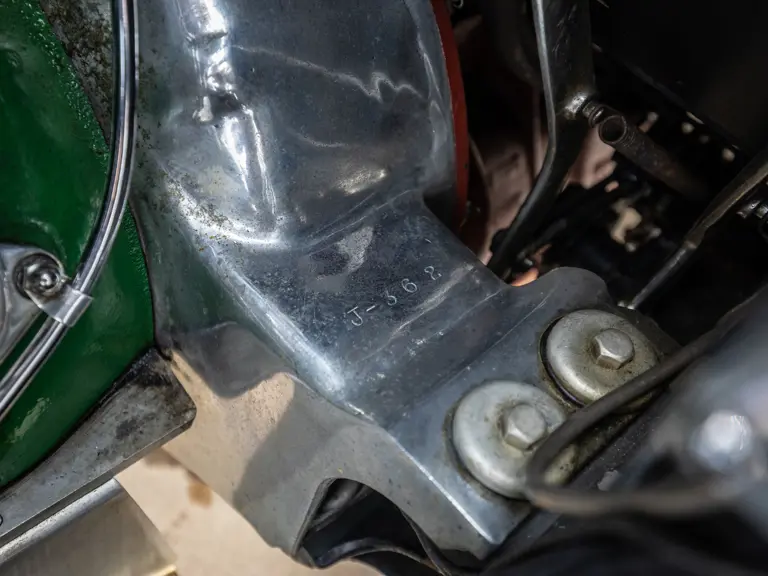
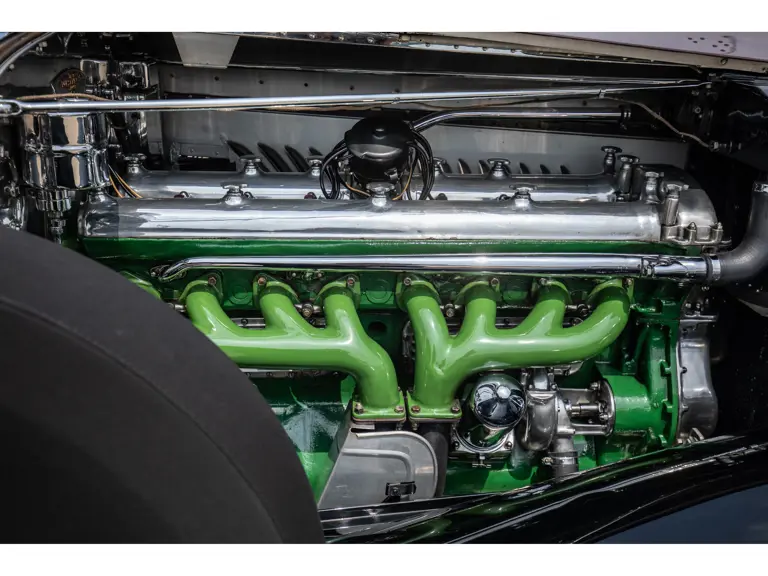
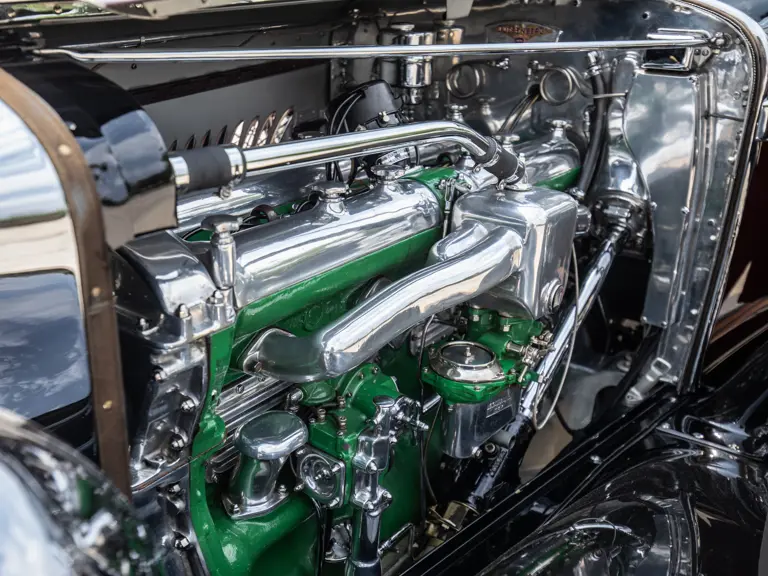
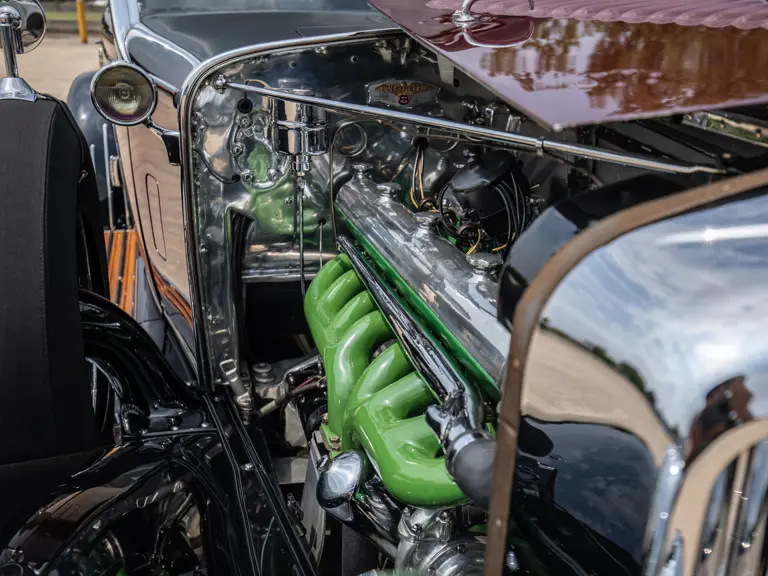
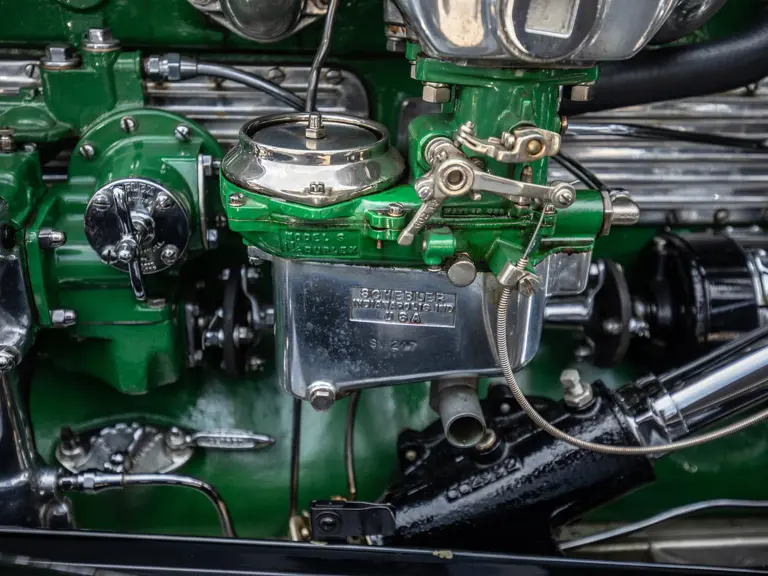
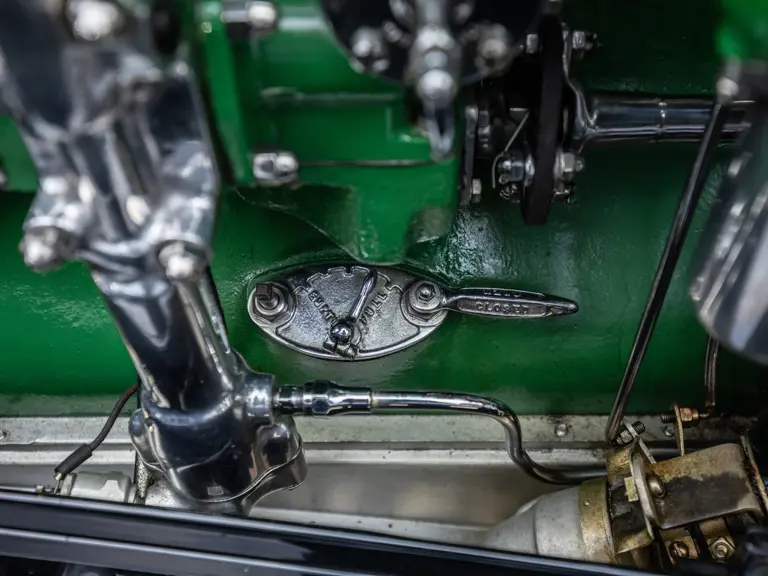
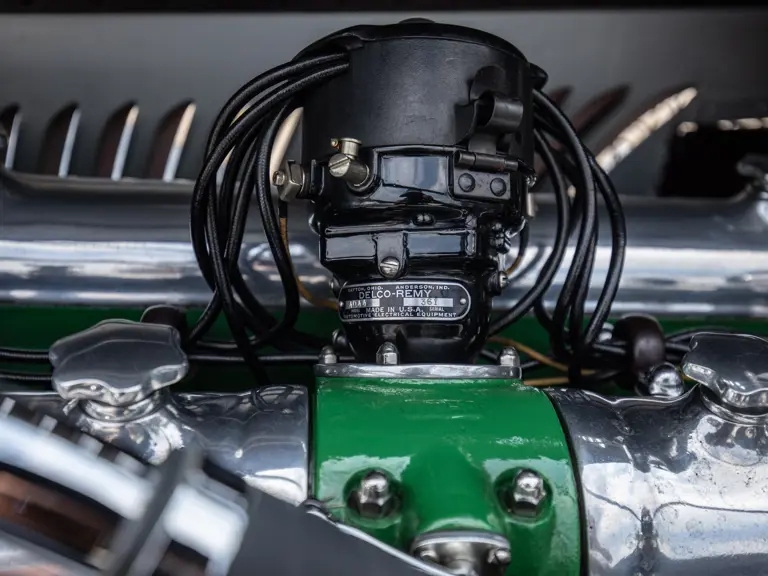
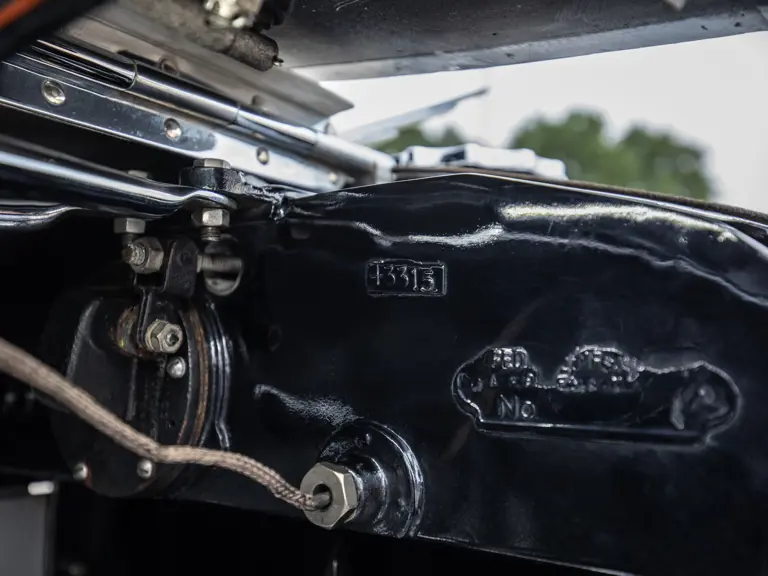
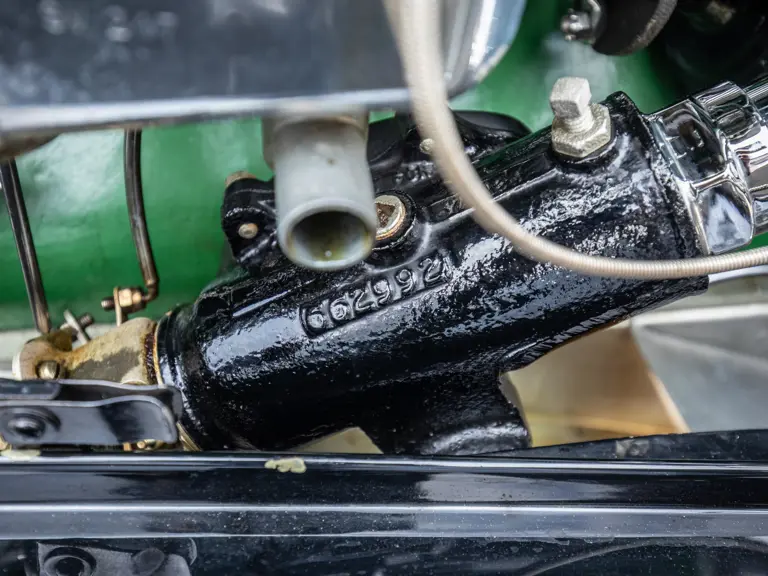
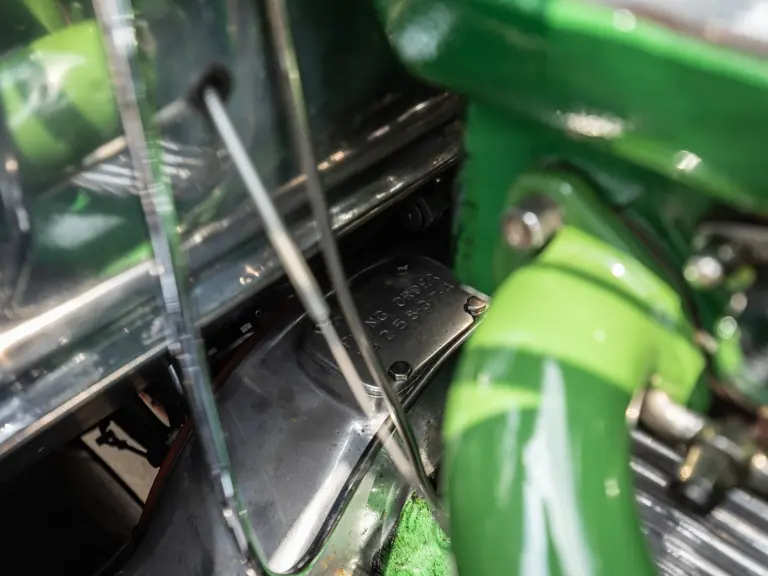
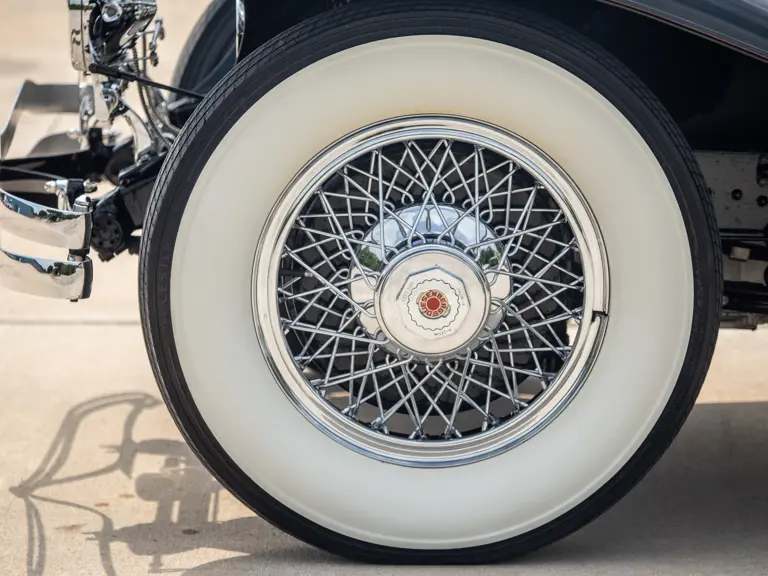

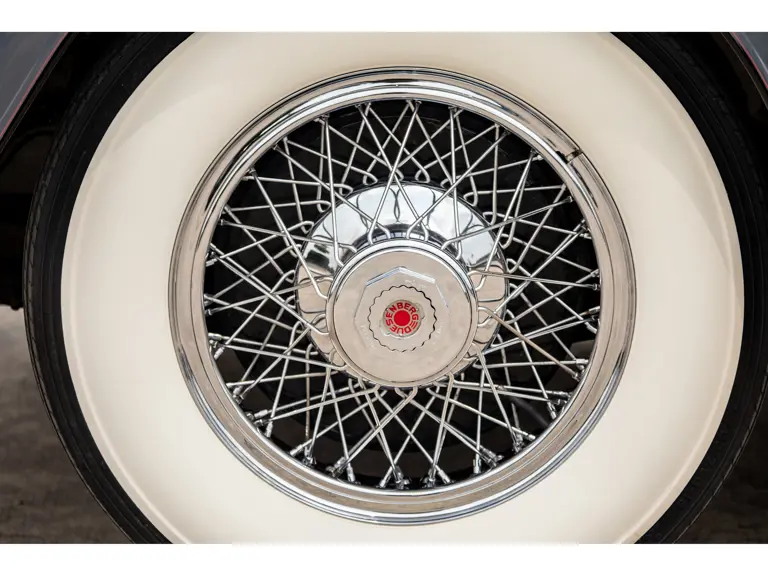
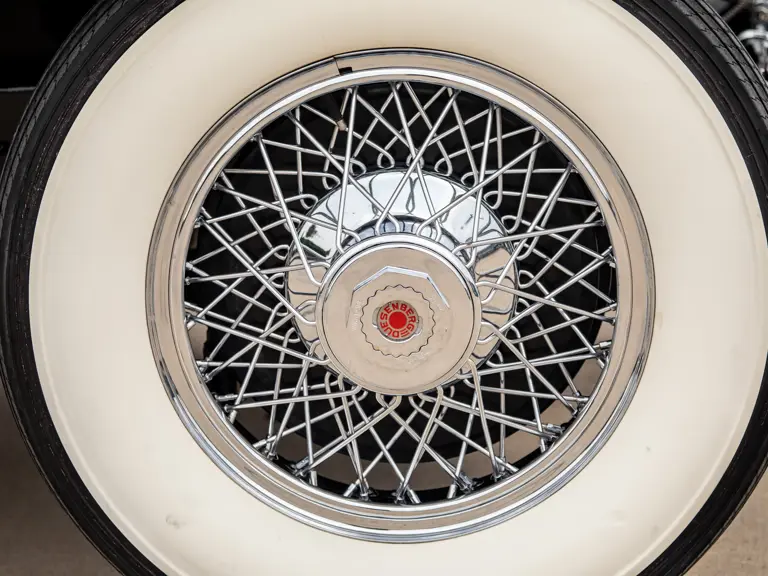
 | Monterey, California
| Monterey, California
